Renowned poet Vinita Agrawal talks about her journey into the realm of books, inner grief, atmospheric poetry and more with Urna – an exclusive for Different Truths.
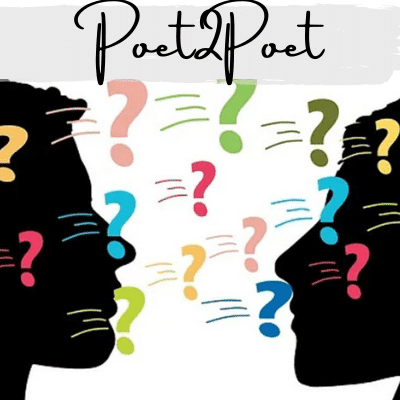
Have you ever felt like bolting out the noise, getting off the bandwagon of existential grime and the daily grind, throwing wide open the speckled windows of your burning heart, and reading a little something?
You must read Vinita’s profoundly immersive, atmospheric poetry on such a day. For her poetry will wipe away the gathering sweat-storm on your temples, apply a vanishing balm on your worries and gently knock on the chambers of your heart. Powerful and compelling. Lyrical and lucid. Nuanced and meaningful.
Urna: What was your childhood like in Kalimpong, Kolkata, and Baroda? Who were your favourite authors? What role did books and reading play in shaping you?
Vinita: You’ve missed one crucial city – Bikaner, where I was born and visited annually for a few days. I was shaped by the places I lived in. Bikaner gave me a sense of my roots and belonging. Kalimpong entrenched in me the British/Irish education and culture. Kolkata, which I loved and adored because it brought me face-to-face with myself. I spent all my adolescence in the City of Joy. Baroda was where I finally left my childhood behind. I did my B.A. and M.A. there. It’s where I grew up once and for all. Baroda wove itself into my heart.
I’ve had a rather cosseted life because I had extraordinarily supportive parents. But I was a willful child. Very independent. And I loved nature. As a young girl, you’d likely find me on sand mounds, picking tiny shells. There was construction around my house, so fresh truckloads of sand came in daily. Or you’d find me crushing hibiscus flowers with stones to make a sauce or burying the seed of a mango I’d eaten and waiting for a tree to grow out of it.
I read voraciously! My favourite was Enid Blyton. But my parents also bought me many children’s books by Indian authors. Unfortunately, I can’t remember the names of these authors now. One of my favourite books was titled Dul Dul, the Donkey. I’m still searching for the author’s name. I used to pour over children’s encyclopedias as well. I clearly remember my father’s friends gifting me books on my birthday as a young child.
Books shaped my psyche to a very great extent. I lived entirely in a world of imagination. And that way, I never felt alone. Looking back, I was an only child, and I think books were my friends. They were a source of great pleasure. They exposed me to new situations and places and, in doing so, equipped me to face almost anything in life.
Urna:
"When you arrive, be the rain"
Those sublime lines from your poem Lightness have perched at the edge of my consciousness. How and when did poetry arrive in your life?
Vinita: Thank you for resonating with those lines.
Poetry arrived in my life as soon as I was able to write. Perhaps even before that, because my mother used to tell me I used to make up and voice out small rhymes to my dolls.
I wrote, rather ranted, a lot in my adolescent years. But it was all in my diaries. Even up till late in life, I remained a closet poet. I was a part of poetry groups in college but didn’t pursue getting my poems published. My journey started when Femina published my poem Pain when Kamala Das edited their poetry page. This was in 1997.
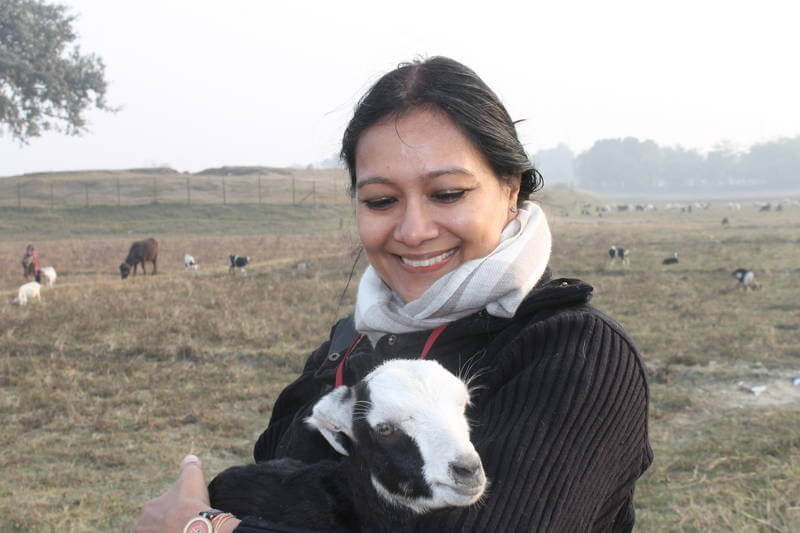
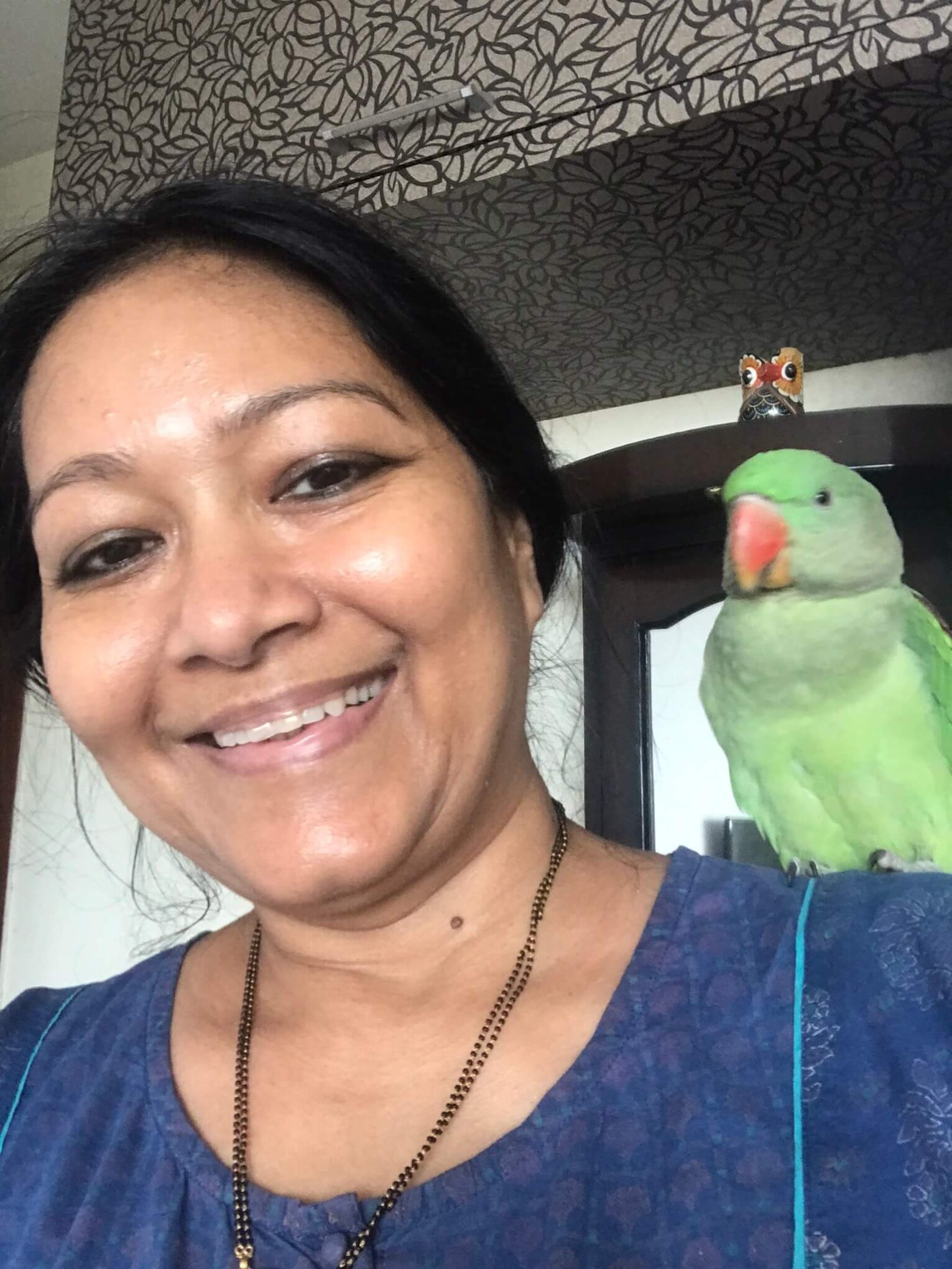
Urna: Shadowy and heavy like twilight, grief sits heavy on one’s shoulders. What does it take for a poet to reach the point where suffering can be somewhat transcended and then slowly, albeit painfully, emptied as poetry? Tell us about your book Twilight Language and its special Indian edition, The Natural Language of Grief.
Vinita: When can a poet reach the still point where grief can be somewhat transcended and emptied as poetry – that’s a profound question. Thank you for asking me this question. I feel grief always looks for a way out from your body and mind – through tears, emotional outbursts, and words.
A poet learns to channel deep inner grief into carefully chosen words, perspectives, and metaphors. The still point that you mention comes with maturity and wisdom. The latter is natural sometimes. Sometimes it is acquired over a spate of bitter experiences. It’s vital that we strive for that meridian – where we can look at anything and everything as a witness. The top view. The third-person perspective. Until we are entrenched in our experiences, we won’t be able to sort out our emotions. We need distance to be able to process these intangible things. Perhaps that’s the route to reach that still point.
Twilight Language is a book-length collection of poems and is the winner of the Proverse Prize 2021. It derives its name from ancient India’s polysemic language and communication system. Literally speaking, it is crepuscular – looking at dimness. In the book, the language looks at the gloom of the pandemic era, the twilight faced by planet earth in the face of the raging climate crisis, and the common existential questions that we all seem to grapple with daily. Concepts are used as inducers of poems. They evoke perceptions in the same way that sensory experiences do.
The book is a conduit of hope and a better tomorrow, a visage of the poet’s experiences inhabiting our vast universe. The poems will help the reader recognise their distinct connection with the earth and practice deep listening to nature.
The Natural Language of Grief is, as you may have surmised, the Indian edition of Twilight Language, verbatim. Proverse, my publishers were very kind to bring out an Indian edition to offset the prohibitive dollar price for Indian readers.
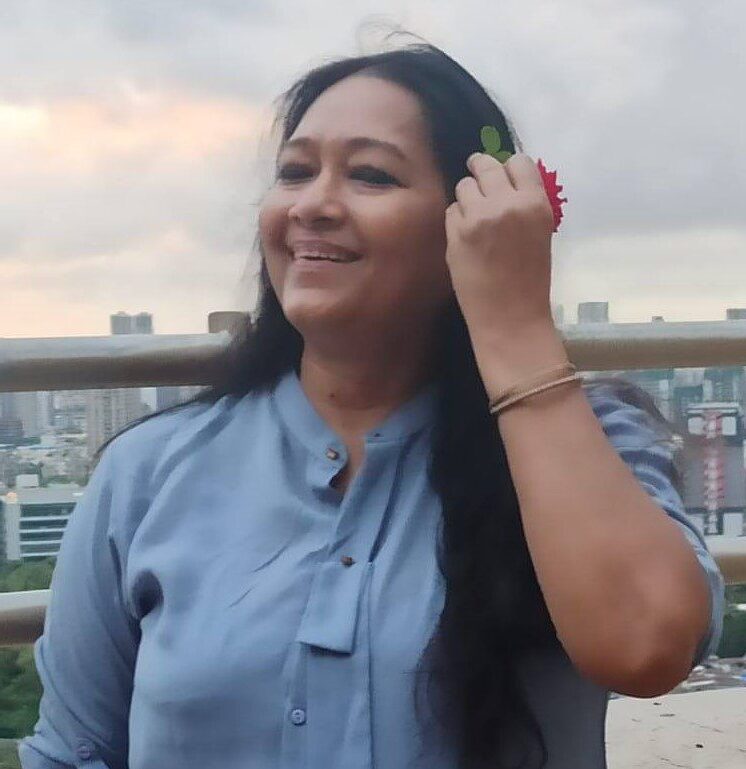
Urna: What does editing mean to you? How do you manage time for your writing along with the herculean pressures of editing and the close engagement and dedicated reading that the process of editing demands?
Vinita: Editing allows me to bring good poems to the forefront of the literary community. I’m grateful for any scope enabling quality work to be showcased and highlighted with me at its helm as an editor or co-editor. The Yearbook series I co-edit with Sukrita is particularly dear to my heart, as are all the other editorial projects I’ve undertaken, particularly as poetry editor with the Usawa literary journal. The work doesn’t feel Herculean if you enjoy it and are invested in it from the heart.
All my editorial work takes up about three months, though not in a continuum of time. Effectively, that leaves me nine months to do my writing. That’s a fair ratio, don’t you think?
Urna: You judged the RaedLeaf Foundation for Poetry & Allied Arts Poetry Contest (International Prize) in 2016 and co-judged the Asian Cha’s poetry contest on The Other Side in 2015, along with a host of others. Editing, too, entails a great deal of assessing the good from the not-so-good. Given the subjectivity of it all, how do you go about judging poetry? Are there any yardsticks or criteria that help you in your process?
Vinita: I feel it’s accessible to ‘judge’ (gently using the word) poetry compared to other writing genres. The reason for that is simple; poetry gets its message to you in a compact manner through brevity and precision.
Yes, preferences for poetry are subjective. I respect that. Yet a good, worthwhile poem stands out because it impacts you. It lingers in your mind. You can’t forget it easily. It stirs in the depths of your heart. It makes you wonder about the agility of craft and style. A good poem reflects the poet’s dedication to writing it. It’s simply not one that’s been scrawled out without a thought to language, punctuation, and meaning.
Language and craft are critical to me when I read a poem. By language, I don’t mean using fancy words, words that beckon a dictionary, but instead, words that are beautifully and innovatively strung together. And by craft, I mean how the poem presents itself, how it invites the reader in, and how cleverly it leads you to what it has to say.
Five Poems by Vinita Agrawal
Poem #1 Ant in Amber The craggy underside of a leaf is full of toeholds. It allows me to walk upside down on the bristling length of a stem. I dive into the plush velvet of the hibiscus, slurp on the milk of aphids. From the tips of my elbowed antennae to the ends of my chitin exoskeleton, I am industrious, invincible. Here in this forest of conifers, the scent of the pines makes me heady. Climbing a particularly tall, arrow-shaped bark, I encounter a missing limb. Resin oozes on the tree trunk. slender hindgut trapped in Amber lost pheromones
Poem #2 Stroke A morning might begin like this, windows closing to light, a punch of darkness delivered to the solar plexus of a day. Your voice barely audible on the phone saying you'd had a fall that you could barely move, could barely swallow. I'll be right there. The long, tight grip of rain on my heart. Six hours of thinking the worst before I reach. Kind neighbours have shifted you to the hospital. You're in the ICU, tubes and wires rudely in and out of your body. I climb the mountain of the moment. Your eyes brighten when they spot me. Your gaze sews my fears. Daddy. Our hands cling. Tomorrow I'll know a numbness colder than your skin. A flattening of all things. How will I vocalise the rising rale of pain? Loss, a Peepul tree, will take roots inside my chest. For years it will grow - leaf by leaf. For years the earth will feel heavier. First published as the winner of the special mention prize in Mingled Voices, Vol VII, Proverse, Hongkong.
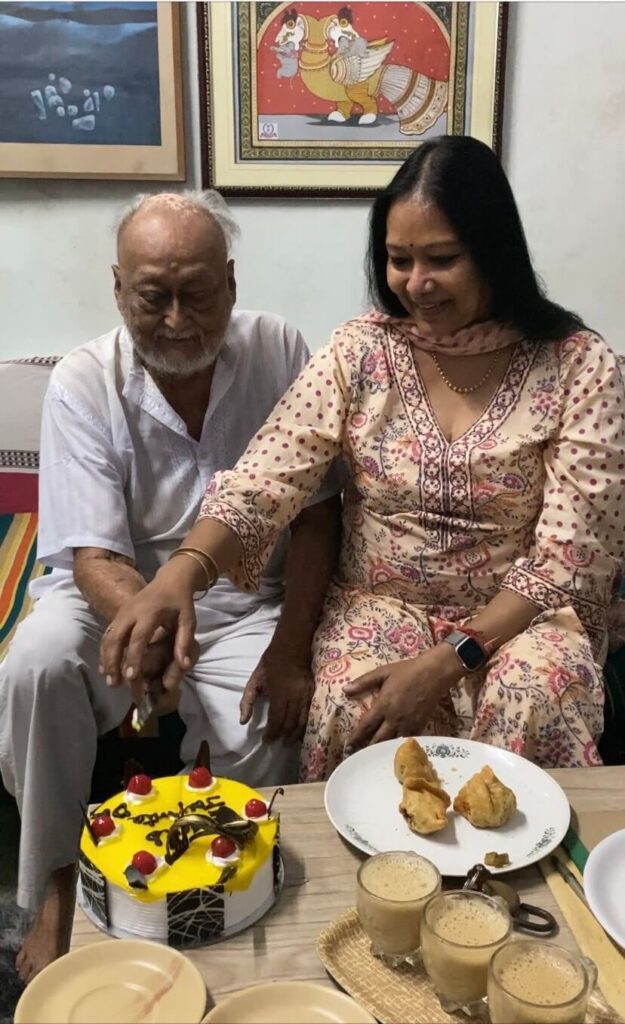
Poem #3 Face Orogeny From the small eleven between the eyebrows to the bunnies on the bridge of the nose from crow's feet to nasolabial folds lip lines to marionette lines, the face is a drawing book. Of all the 648 full moons I've seen so far I recall the one that came a month after mother's passing, a gentle smile in the sky shining through the July clouds glinting in the rain. There's a mountain beside me made of the moss of broken thoughts that I've culled from the grey mists of my mind. I didn't know the shade of mountains could be soft. I've felt my heart plummet so many times that I fear it might need braces to stop from falling altogether. Something stays locked inside me like a lift stuck between floors like an image in an age-speckled photo that just won't clear no matter how many lines I wear. First published in The Punch Magazine, May 2021
Poem #4 Atom in a Language Ordinary We spend our lives growing up following shapes of curved territories uniting opposites, becoming eternal. If we are mocked, we become still. Never running through puddles again or owning up to diseases with dubious names or speaking English with vernacular accents. We treat our dead better, than alive as though the dark heavy rest of earth has luminescence now as though the strong heaven movement now carries a threat. We want people around us the way we want clouds - distant. Raining someplace else bringing the heady scent of mud to us not the cloying rivulets. Proximity is lethal distance, benign. Words are weapons when spoken simmering volcanoes when suppressed. We strain to collect atoms of goodness in our bellies. Strain to embrace that which is ordinary; afraid to become like the fisherman, who looks for water in the sea. First published in The Punch Magazine, May 2021
Poem #5 The Parentheses of Colours Green: chlorophyll channels open past midnight never the pause of a Sunday in manufacturing sun's slingshots of light greedily gathered grass blades, new shoots, tree canopies in-love-with-every-leaf-green. Red: intensely ingrained in the kermes crawling at the foot of giant oaks flowing in arteries glowing on Ferraris and that which flows from wounds. Blue: actual sky, frank firmament expansive like adult loneliness tenting like an aching absence whatever's left over after love has gone the colour of holding your breath for too long. Yellow: the piss of cows fed exclusively on marigolds Krishna's dhoti, the brittled edges of old love letters, streaks of flames raking air. A field of sunflowers. Black: hue of secrets sad-as-bone black the fragrance of Mars the colour of humble charcoal The shade of I'm-alive-but-not-quite. White: when all colours lie frosted. The colour of light. Of sheets, pillows, bones, beaks, tusks, blanched cheeks. the colour of a blank canvas saying do-what-you-will-with-me. Rainbow: split-light, a dressed-up palette oil floating on water, an array of gelatos. A spectacle that's gone in the blink of an eye.
Photos and video sourced by the interviewer
Video design Anumita Roy, Different Truths

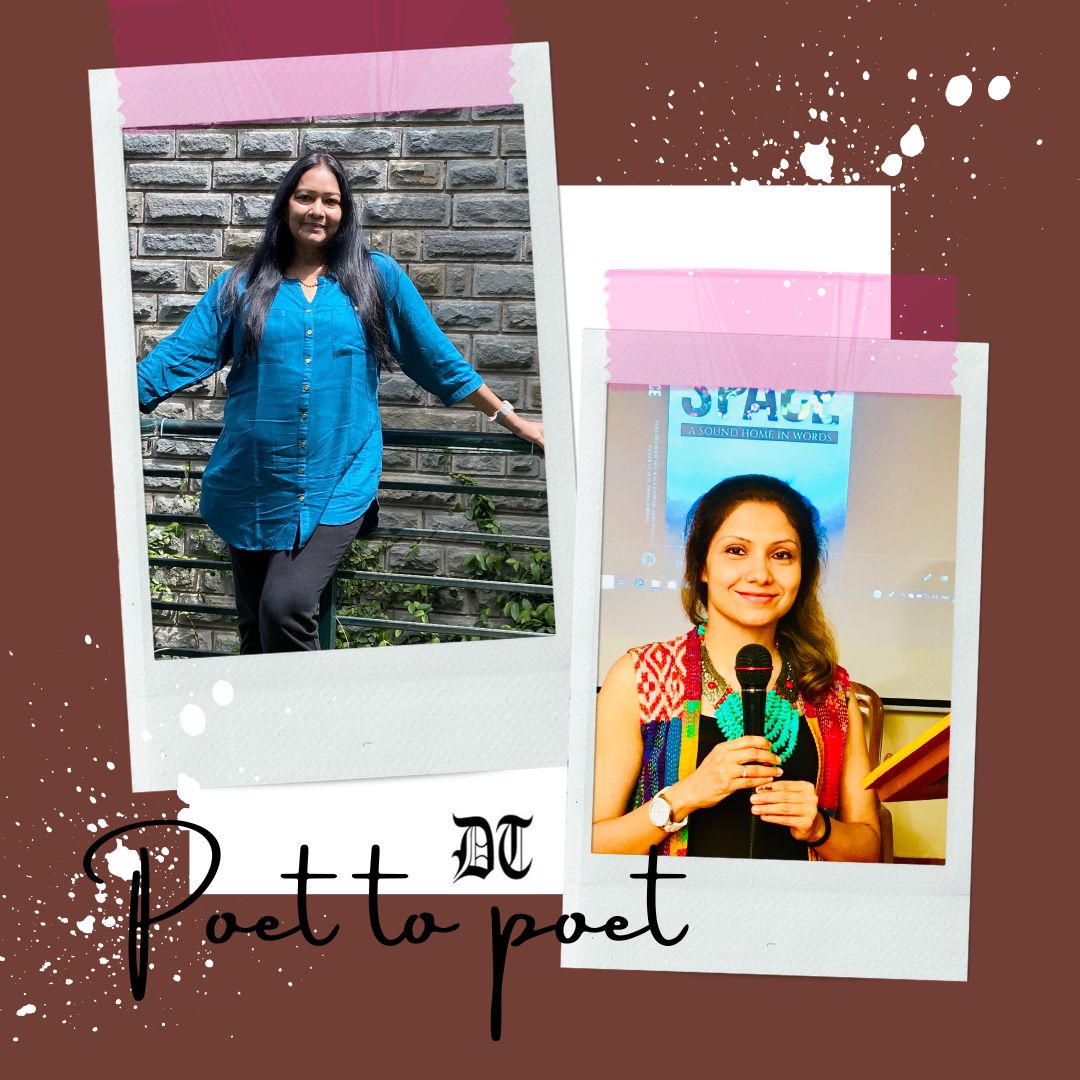
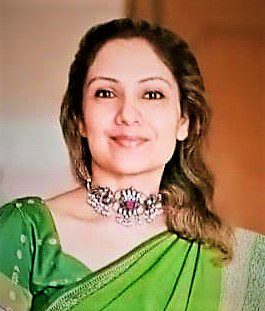

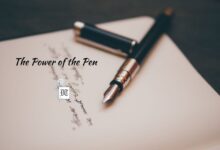

 By
By
 By
By
 By
By
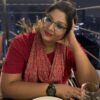 By
By